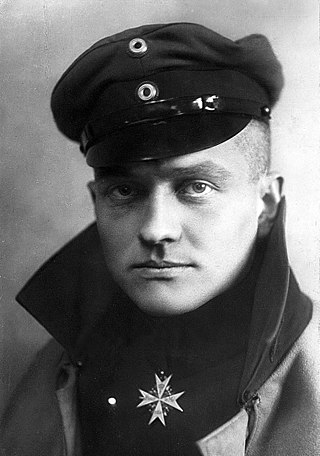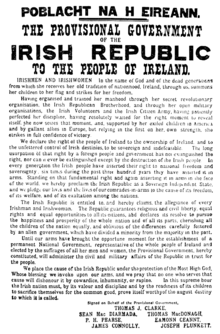1916 (MCMXVI) was a leap year starting on Saturday of the Gregorian calendar and a leap year starting on Friday of the Julian calendar, the 1916th year of the Common Era (CE) and Anno Domini (AD) designations, the 916th year of the 2nd millennium, the 16th year of the 20th century, and the 7th year of the 1910s decade. As of the start of 1916, the Gregorian calendar was 13 days ahead of the Julian calendar, which remained in localized use until 1923.
1915 (MCMXV) was a common year starting on Friday of the Gregorian calendar and a common year starting on Thursday of the Julian calendar, the 1915th year of the Common Era (CE) and Anno Domini (AD) designations, the 915th year of the 2nd millennium, the 15th year of the 20th century, and the 6th year of the 1910s decade. As of the start of 1915, the Gregorian calendar was 13 days ahead of the Julian calendar, which remained in localized use until 1923.

The Battle of the Somme, also known as the Somme offensive, was a major battle of the First World War fought by the armies of the British Empire and the French Third Republic against the German Empire. It took place between 1 July and 18 November 1916 on both sides of the upper reaches of the river Somme in France. The battle was intended to hasten a victory for the Allies. More than three million men fought in the battle, of whom more than one million were either wounded or killed, making it one of the deadliest battles in all of human history.
The British Expeditionary Force (BEF) was the six-divisions the British Army sent to the Western Front during the First World War. Planning for a British Expeditionary Force began with the 1906–1912 Haldane Reforms of the British Army carried out by the Secretary of State for War Richard Haldane following the Second Boer War (1899–1902).
The 36th (Ulster) Division was an infantry division of the British Army, part of Lord Kitchener's New Army, formed in September 1914. Originally called the Ulster Division, it was made up of mainly members of the Ulster Volunteer Force, who formed thirteen additional battalions for three existing regiments: the Royal Irish Fusiliers, the Royal Irish Rifles and the Royal Inniskilling Fusiliers. The division served from October 1915 on Western Front as a formation of the British Army during the Great War.
Events from the year 1921 in the United Kingdom.
Events from the year 1916 in Ireland.
Events from the year 1944 in the United Kingdom. The year was dominated by the Second World War.
Events from the year 1942 in the United Kingdom. The year was dominated by the Second World War.
This article is about the particular significance of the year 1916 to Wales and its people.
Events from the year 1915 in the United Kingdom. The year was dominated by the First World War, which broke out in the August of the previous year.
Events from the year 1917 in the United Kingdom. The year was dominated by the First World War.
Events from the year 1919 in the United Kingdom.
Events from the year 1918 in the United Kingdom. This year sees the end of the First World War after four years, which Britain and its allies won, and a major advance in women's suffrage.
Events from the year 1914 in the United Kingdom. This year saw the start of the First World War, ending the Edwardian era.
Events from the year 1916 in France.

The Battle of the Boar's Head was an attack on 30 June 1916 at Richebourg-l'Avoué in France, during the First World War. Troops of the 39th Division, XI Corps in the First Army of the British Expeditionary Force (BEF), advanced to capture the Boar's Head, a salient held by the German 6th Army. Two battalions of the 116th Brigade, with one battalion forming carrying parties, attacked the German front position before dawn on 30 June. The British took and held the German front line trench and the second trench for several hours, before retiring to their lines having lost 850–1,366 casualties.

The Pozières Memorial is a World War I memorial, located near the commune of Pozières, in the Somme department of France, and unveiled in August 1930. It lists the names of 14,657 British and South African soldiers of the Fifth and Fourth Armies with no known grave who were killed between 21 March 1918 and 7 August 1918, during the German advance known as the Spring Offensive, and the period of Allied consolidation and recovery that followed. The final date is determined by the start of the period known as the Advance to Victory on 8 August.

The following events occurred in September 1916:
Events from the year 1916 in Scotland.






